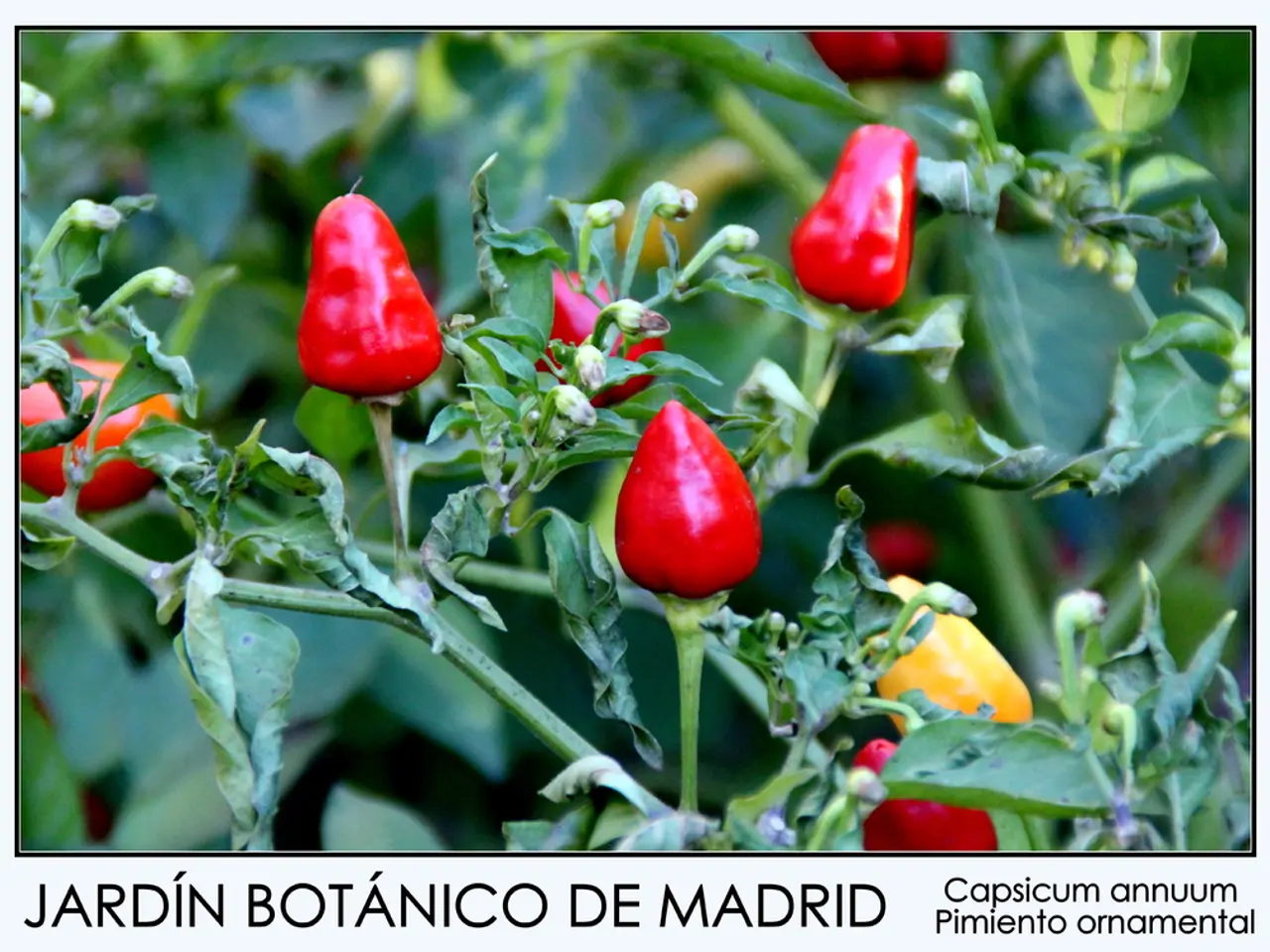Preserving peppers without chemical interventions.
In the heart of the growing season, gardeners face a common foe - aphids. These tiny, sap-sucking insects can wreak havoc on pepper plants, draining them of essential nutrients and stunting growth. To combat this, a variety of natural and biodegradable methods are available to protect your garden without resorting to harmful chemicals.
One effective option is the use of biopreparations such as Neem oil and Fitoverm. Neem oil, derived from the seeds of the neem tree, acts as a natural pesticide by disrupting aphids’ feeding and egg-laying. It is applied as a spray made by mixing about 2 teaspoons of neem oil with water and a small amount of mild soap, then sprayed on all plant surfaces including leaf undersides. Fitoverm, a bio-insecticide derived from the fermentation products of a naturally occurring soil bacterium, targets aphids by causing paralysis and death upon contact without chemical toxicity. Both of these options are suitable for organic gardening.
Spraying aphids off with strong water jets is another effective method for physically removing them from plants, particularly in cases of light infestations. Encouraging or introducing natural predators such as ladybugs, lacewings, and parasitic wasps (Aphidius spp.) can also help biologically reduce aphid populations. Cultural controls such as crop rotation, intercropping with non-host plants, pruning tender shoots, and avoiding over-fertilization with nitrogen can also help reduce aphid attraction and infestation pressure.
Homemade sprays using strong smells aphids dislike, like garlic or chili infusions, can repel them without harming plants. Insecticidal soaps made from mild detergent or Castile soap diluted in water can also suffocate aphids on contact without harsh chemicals.
By combining these biopreparations and natural approaches, gardeners can form an integrated pest management strategy that effectively controls aphids on pepper plants in an environmentally friendly manner. Regular monitoring and early application improve results substantially.
In other news, Magadan and Magadan Oblast remain in the spotlight, with a group focusing on the region's life and a source for news about Magadan available through Magadan News in Telegram. For those seeking advice on getting rid of aphids on peppers without harmful chemicals, the channel "Gardening Routines" offers valuable insights.
As the peppers continue to ripen, it is crucial to keep a watchful eye for signs of aphid infestations and take prompt action to protect your garden. With these natural and effective methods, you can ensure a bountiful harvest and a thriving garden.
A home-and-garden enthusiast seeking organic ways to combat aphids on pepper plants could find value in the channel "Gardening Routines" on Telegram, which offers insights on aphid control without harmful chemicals. In the heart of Magadan, where life continues to evolve and grow, a dedicated group and news source like Magadan News on Telegram keep followers informed of the region's happenings.




